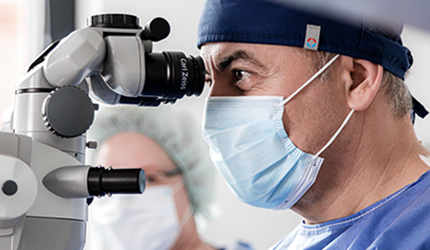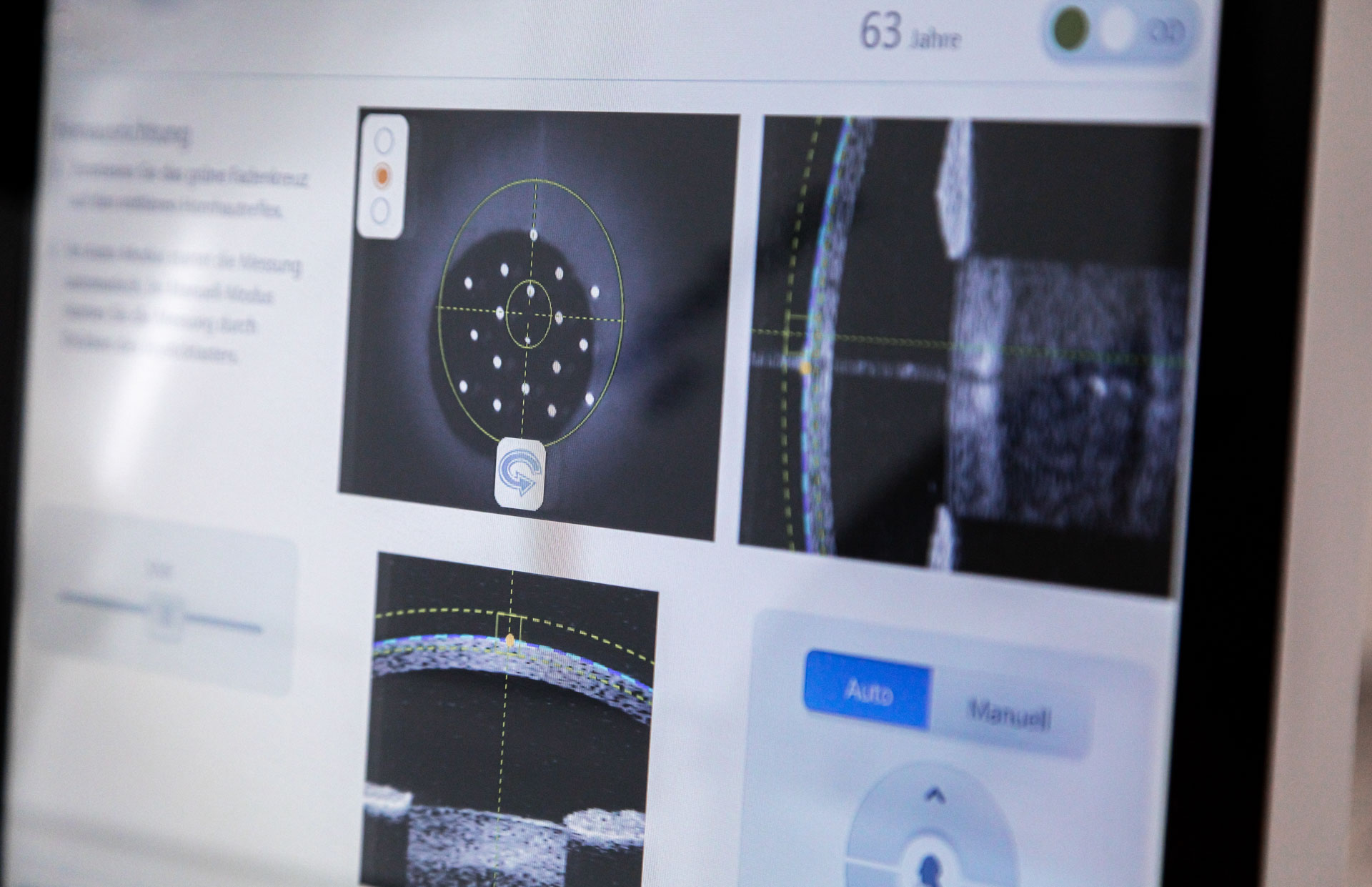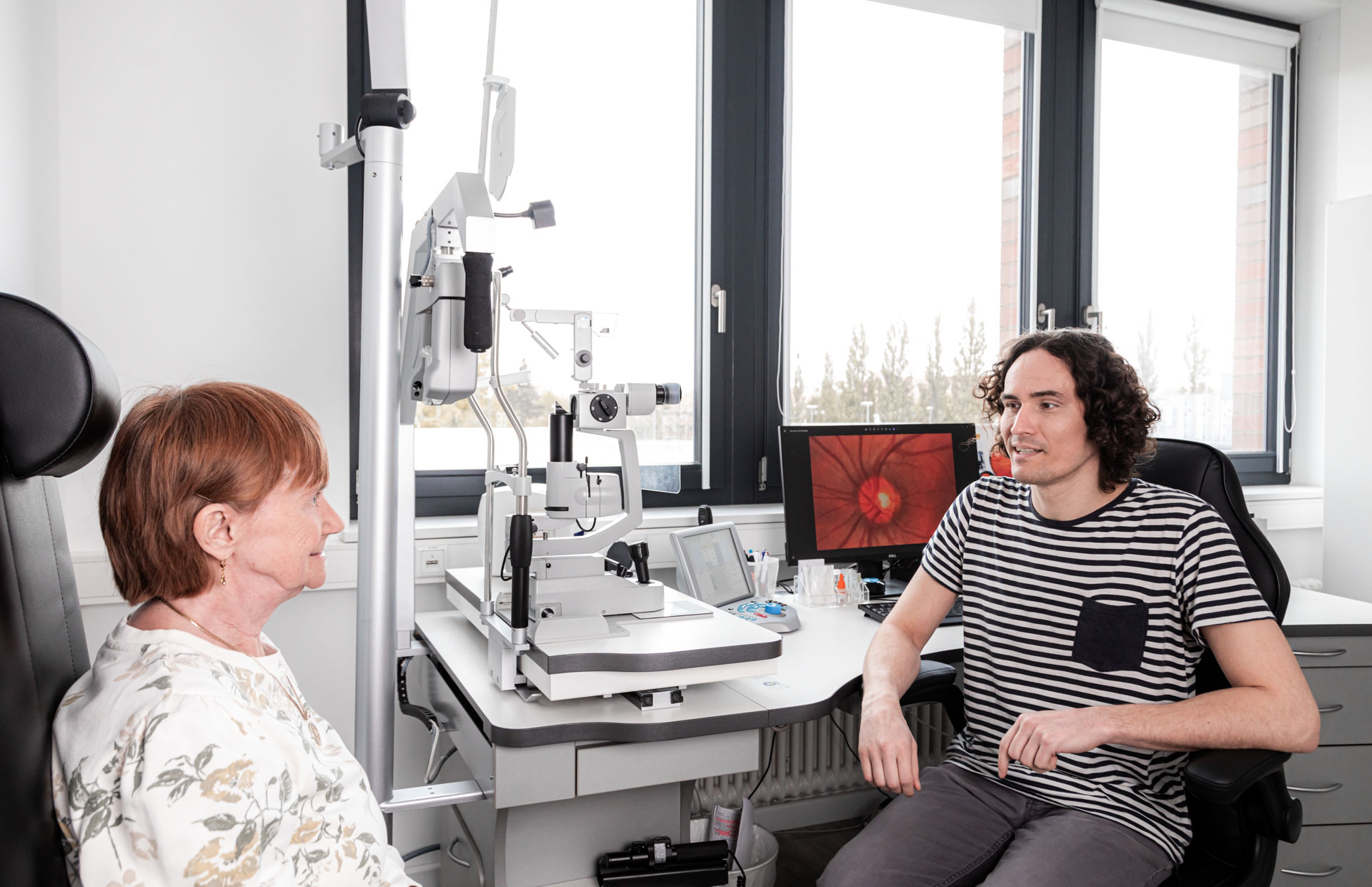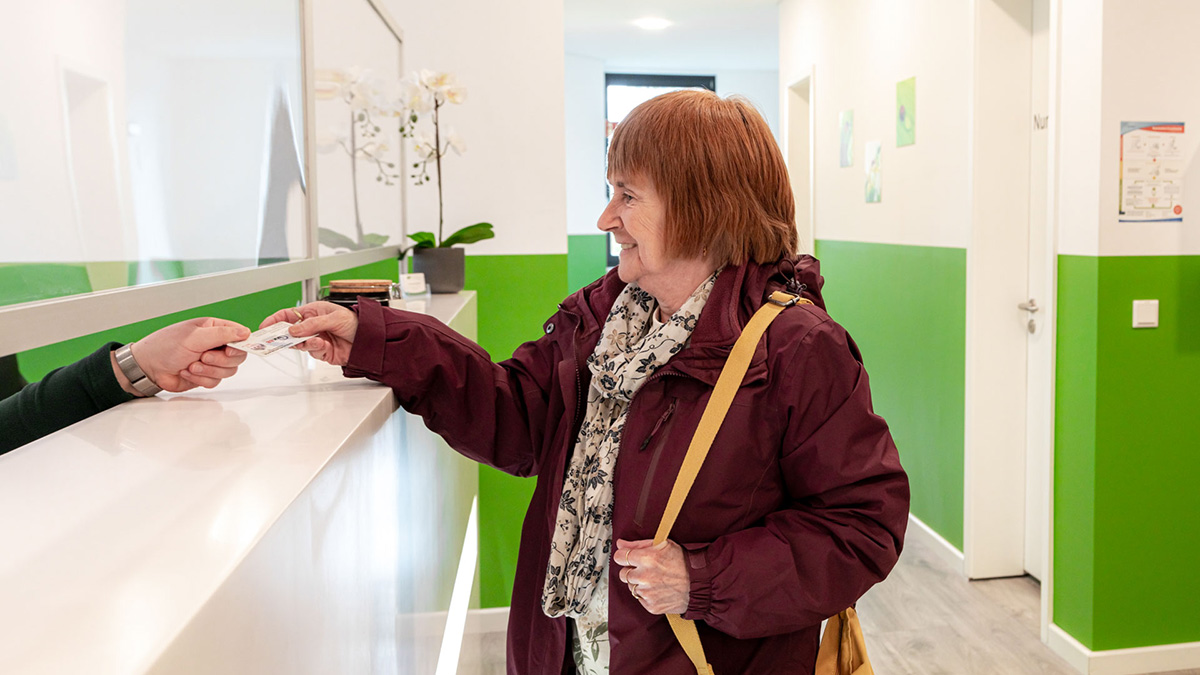

Have cataracts treated in Berlin
Sharp vision with Sanoculus!
Table of contents
Cataracts describe a natural clouding of the lens of the eye that leads to impaired vision. This is not a disease, but a natural symptom of aging. If the lens becomes cloudy in the course of life, those affected see increasingly blurred and blurred
– as if through a veil or fog. Cataracts can only be treated by eye surgery , in which the clouded lens is replaced by an artificial lens. The painless routine procedure is carried out by our experienced specialists in the Sanoculus Surgery Centre .
Sanoculus Ophthalmologists inform
How can I recognize a cataract?
Due to the clouding of the lens of the eye, the affected people can no longer see clearly and sharply. Over time , the colors fade and contrast vision decreases.
Loss of vision and sensitivity to light are the only symptoms of cataracts, which are also recognizable to others as a gray coloration behind the pupil .
Cataract symptoms
Decreasing visual acuity
Blurred vision
See as if through a veil or fog
Sensitivity to light, increased glare
Delayed adaptation to light and dark
Poorer contrast perception and color fading
Decreasing spatial vision

“The surgical team is super nice, the operation was painless. I felt very comfortable and see much better again.”
“Nice doctor, well explained, great team, calm atmosphere, I am completely satisfied.”

Diagnosis of cataracts
Since there are many different causes of deteriorating vision, a reliable medical diagnosis is essential for the treatment of cataracts. An experienced ophthalmologist from Sanoculus will ask about the symptoms and your medical history during a detailed anamnesis . This is followed by eye examinations with state-of-the-art equipment and special tests to determine how severely the vision is already impaired.
Cataract surgery at the modern Sanoculus Eye Center
The success of cataract surgery requires not only the highest precision but also many years of experience on the part of the eye surgeon. For our modern examination and surgical techniques, we have high-end technologies for precise preoperative diagnostics. Calculating the right artificial lens for your eye brings an optimal result – for a lifetime.


Cataracts
and other eye diseases
Almost all patients see much better after cataract surgery . In the case of additional eye diseases such as macular degeneration, diabetic retinopathy, glaucoma or optic nerve circulatory disorders, the result may vary. These multiple diseases increase with a higher life expectancy. Your ophthalmologist at Sanoculus will be happy to advise you on what improvements eye surgery can bring in your case.
Frequently Asked Questions about Cataracts

For medical colleagues:
Patient referral for eye operations

Are you looking for specialists for eye surgery in Berlin for your patients? If you would like to refer your patient to us, please register them for our consultation hours. Please include any previous findings (hospital letters, old FLAs or OCTs etc.) directly.
This way we can avoid unnecessary duplicate examinations.



